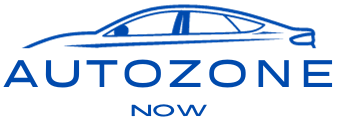Advertisement
Protein Intake for Muscle Building: Unveiling the Blueprint for Optimal Gains
By Staff Writer
Advertisement - Continue reading below
Building muscle is a multifaceted journey that involves consistent resistance training, adequate rest, and, of course, a well-structured nutrition plan. Central to this plan is the strategic consumption of protein, the building block of muscle tissue. In this article, we delve into the essential aspects of protein intake for muscle building, guiding you toward optimal gains and a stronger, more sculpted physique.
**1. Understanding the Role of Protein in Muscle Building
Protein as the Building Block
Muscles are predominantly composed of protein, making adequate protein intake crucial for muscle repair, growth, and maintenance. When you engage in resistance training, micro-tears occur in muscle fibers, and protein serves as the fundamental element in repairing and rebuilding these fibers, leading to muscle hypertrophy.
**2. Determining Your Protein Needs
Body Weight and Activity Level
The amount of protein you should consume depends on various factors, with body weight and activity level being primary considerations. As a general guideline, individuals engaged in muscle-building activities typically require a higher protein intake than sedentary individuals.
Protein Requirements Formula
Multiply your body weight in kilograms by a factor that aligns with your activity level:
- Sedentary (little or no exercise): 0.8 – 1.0 grams of protein per kilogram of body weight.
- Moderately active (light exercise or sports 1-3 days per week): 1.2 – 1.5 grams per kilogram.
- Active (moderate to intense exercise 3-5 days per week): 1.6 – 1.8 grams per kilogram.
- Very active (intense exercise 6-7 days per week): 1.8 – 2.0 grams per kilogram.
**3. Timing Matters: Distributing Protein Throughout the Day
Protein at Every Meal
Rather than consuming a large portion of your daily protein in one meal, aim to distribute it evenly throughout the day. This practice provides a continuous supply of amino acids for muscle repair and growth.
Pre and Post-Workout Protein
Consuming protein before and after your workout is particularly beneficial. Pre-workout protein fuels your muscles, while post-workout protein aids in recovery and muscle synthesis. Aim for a protein-rich snack or meal within 30 minutes to an hour after exercising.
**4. Quality Over Quantity: Choosing the Right Protein Sources
Complete Proteins
Include a variety of complete protein sources in your diet. These sources contain all essential amino acids, the building blocks of protein. Examples of complete proteins include:
- Animal-based sources: Chicken, turkey, beef, fish, eggs, and dairy products.
- Plant-based sources: Quinoa, tofu, tempeh, and soy products.
Supplementation for Convenience
While whole food sources are ideal, protein supplements such as whey, casein, or plant-based protein powders can be convenient ways to meet your protein needs, especially on busy days.
**5. Adjusting for Individual Goals and Body Composition
Consider Your Muscle Building Goals
Individual goals, metabolism, and body composition also play a role in determining protein needs. Those aiming for aggressive muscle building or in a calorie deficit may benefit from higher protein intakes to preserve muscle mass.
Assessing Progress and Adjusting Intake
Regularly assess your muscle-building progress and adjust your protein intake accordingly. If you’re not seeing the desired gains, consider increasing your protein intake gradually.
**6. Hydration: The Often Overlooked Factor
Water and Protein Synthesis
Adequate hydration is vital for optimal protein synthesis. Water plays a crucial role in transporting nutrients, including amino acids, to your cells, facilitating the repair and growth of muscle tissue.
Monitor Fluid Intake
Monitor your fluid intake, especially if you’re consuming higher protein amounts, as protein metabolism can increase the body’s water needs.
**7. Consulting with a Nutrition Professional or Fitness Expert
Personalized Recommendations
For individuals with specific dietary restrictions, health conditions, or those with unique fitness goals, seeking guidance from a nutrition professional or fitness expert is invaluable. They can provide personalized recommendations based on your individual circumstances.
Avoiding Excessive Protein Intake
While protein is crucial for muscle building, excessively high protein intake may strain the kidneys and potentially lead to other health issues. Consulting with a professional ensures your protein intake aligns with your overall health goals.
Conclusion: Balancing Act for Muscle Building Success
Protein intake for muscle building is a delicate balancing act that requires attention to individual needs, preferences, and goals. By understanding your body weight, activity level, and distributing protein intake strategically, you can create a nutrition plan that supports muscle growth, repair, and overall well-being. Remember, building muscle is a holistic process that involves not only nutrition but also consistent training, sufficient rest, and other lifestyle factors. Embrace the journey, stay committed to your fitness goals, and let strategic protein intake be the cornerstone of your muscle-building success.
Advertisement - Continue reading below













